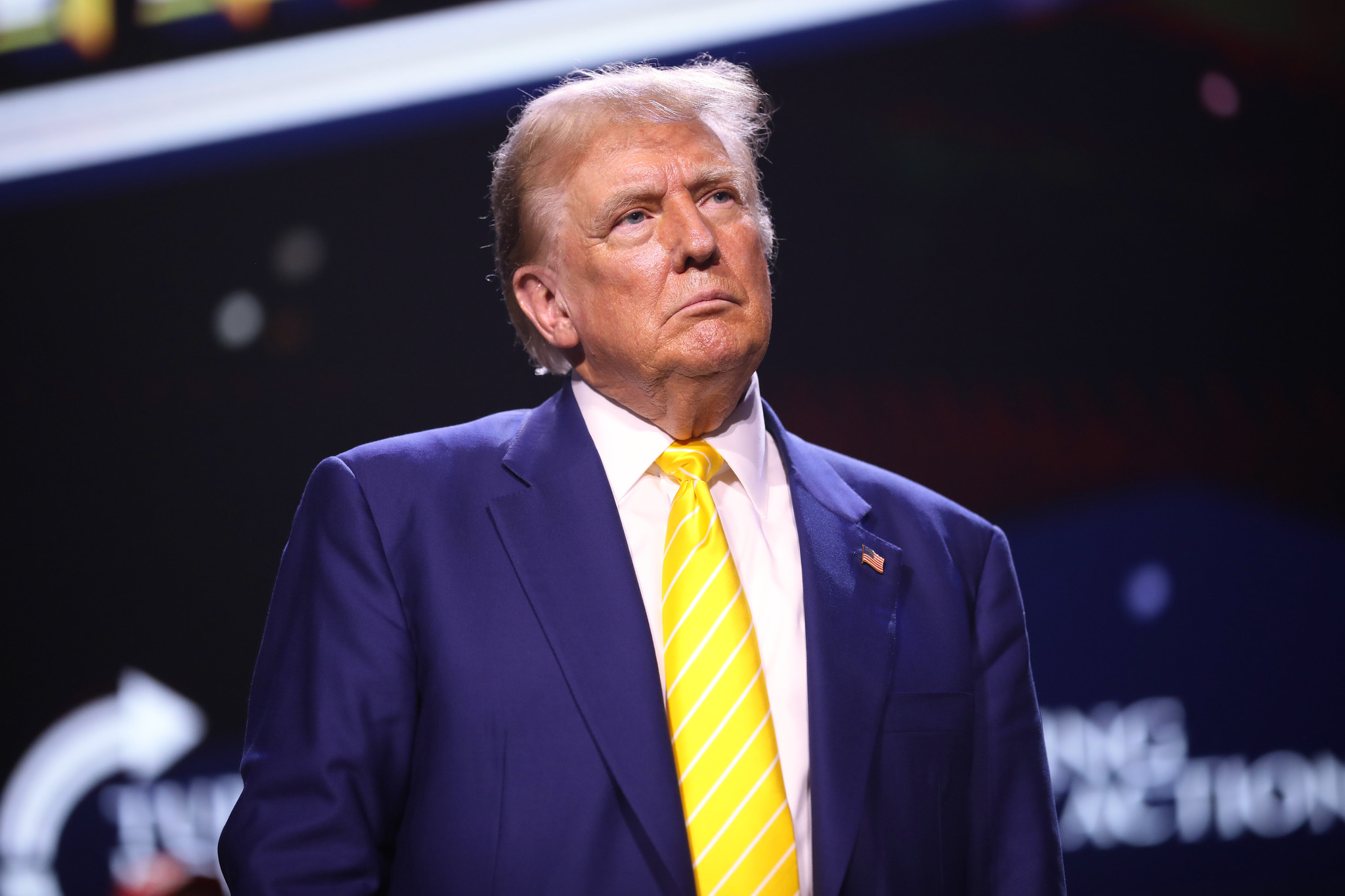Former President Donald Trump has accused the Organization of the Petroleum Exporting Countries (OPEC) of deliberately lowering oil prices to favor Vice President Kamala Harris, suggesting that her presidency could spell disaster for the United States. Trump's remarks came in a fiery post on his social media platform, Truth Social, where he alleged that OPEC nations are manipulating the market to influence the upcoming election.
Trump’s comments follow a noticeable decline in oil stocks, coinciding with speculation that Harris if elected, would implement stricter policies on the oil and gas industry. This development came after President Biden announced he would not seek re-election in 2024 and endorsed Harris as the Democratic presidential nominee.
Data from Benzinga Pro shows that the price of WTI Crude has dropped from $78.64 to $75.43 since Harris's nomination. Major oil companies such as Chevron Corp, Marathon Oil, Exxon Mobil, ConocoPhillips, and EOG Resources have all declined. ETFs tied to the oil sector, including the United States Oil Fund, SPDR Select Sector Fund – Energy Select Sector, Vanguard Energy ETF, and iShares U.S. Energy ETF, are also under pressure.
The former president warned that a Harris administration could usher in policies focused on climate change, such as reducing carbon emissions and increasing funding for renewable energy projects. Such measures could lead to higher compliance costs and stricter regulations for the oil industry, potentially impacting its profitability.
In a report from Citi, analysts suggested that a Trump presidency might be "net bearish" for oil prices due to his oil-friendly policies and potential tariffs, which could increase oil supply and lower prices. However, the report also noted that Trump's maximum pressure campaign on Iran could reduce Iranian oil exports by 500 to 900 thousand barrels daily, affecting global markets.
Goldman Sachs recently warned that the next U.S. administration would have limited options to significantly boost domestic oil supply due to low strategic petroleum reserves and potential regulatory easing. This context further complicates the oil market outlook amid political shifts.
The United States has been producing record amounts of oil, averaging 12.9 million barrels per day in 2023. This surge in production has raised concerns about a potential glut, similar to the oversupply experienced during the 2020 COVID lockdown period.
Trump's contentious relationship with OPEC is not new. In April 2018, he criticized the organization for driving oil prices "artificially very high," a move he deemed unacceptable. His recent allegations against OPEC reflect ongoing tensions and the high stakes of the upcoming presidential election.



 Australian PM Calls Alleged Western Australia Terror Plot “Deeply Shocking” After Arrest
Australian PM Calls Alleged Western Australia Terror Plot “Deeply Shocking” After Arrest  Denver Mayor Orders Police to Protect Protesters, Restricts ICE Access to City Property
Denver Mayor Orders Police to Protect Protesters, Restricts ICE Access to City Property  Trump Media Weighs Truth Social Spin-Off Amid $6B Fusion Energy Pivot
Trump Media Weighs Truth Social Spin-Off Amid $6B Fusion Energy Pivot  Germany and China Reaffirm Open Trade and Strategic Partnership in Landmark Beijing Visit
Germany and China Reaffirm Open Trade and Strategic Partnership in Landmark Beijing Visit  Federal Judge Blocks Virginia Social Media Age Verification Law Over First Amendment Concerns
Federal Judge Blocks Virginia Social Media Age Verification Law Over First Amendment Concerns  Trump Floats Ted Cruz for Future U.S. Supreme Court Nomination
Trump Floats Ted Cruz for Future U.S. Supreme Court Nomination  Israel Declares State of Emergency as Iran Launches Missile Attacks
Israel Declares State of Emergency as Iran Launches Missile Attacks  Macron Urges Emergency UN Security Council Meeting as US-Israel Strikes on Iran Escalate Middle East Tensions
Macron Urges Emergency UN Security Council Meeting as US-Israel Strikes on Iran Escalate Middle East Tensions  Trump Launches Operation Epic Fury: U.S. Strikes on Iran Mark High-Risk Shift in Middle East
Trump Launches Operation Epic Fury: U.S. Strikes on Iran Mark High-Risk Shift in Middle East  Trump Warns Iran as Gulf Conflict Disrupts Oil Markets and Global Trade
Trump Warns Iran as Gulf Conflict Disrupts Oil Markets and Global Trade  Netanyahu Suggests Iran’s Supreme Leader Khamenei May Have Been Killed in Israeli-U.S. Strikes
Netanyahu Suggests Iran’s Supreme Leader Khamenei May Have Been Killed in Israeli-U.S. Strikes  U.S.-Israel Strike on Iran Escalates Middle East Conflict, Trump Claims Khamenei Killed
U.S.-Israel Strike on Iran Escalates Middle East Conflict, Trump Claims Khamenei Killed  Pentagon to Halt Ivy League Programs for U.S. Military Officers Starting 2026
Pentagon to Halt Ivy League Programs for U.S. Military Officers Starting 2026  Pakistan-Afghanistan Tensions Escalate as Taliban Offer Talks After Airstrikes
Pakistan-Afghanistan Tensions Escalate as Taliban Offer Talks After Airstrikes  Dominican Republic Unveils Massive Rare Earth Deposits to Boost High-Tech and Energy Sectors
Dominican Republic Unveils Massive Rare Earth Deposits to Boost High-Tech and Energy Sectors  ICE Hiring Surge Raises Vetting Concerns Amid Rapid Expansion
ICE Hiring Surge Raises Vetting Concerns Amid Rapid Expansion  USITC to Review Impact of Revoking China’s PNTR Status, Potentially Raising Tariffs on Chinese Imports
USITC to Review Impact of Revoking China’s PNTR Status, Potentially Raising Tariffs on Chinese Imports 































